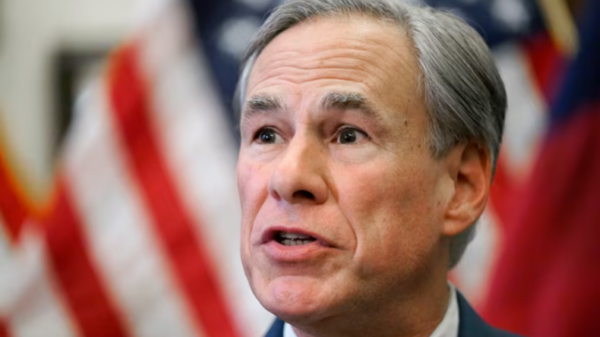North Texans have grappled with temporary shut-downs, adjustments into and out of online learning and back-and-forth battles over mask and vaccine mandates during the pandemic.

By Catherine Marfin and Michael Williams
Dallas County reported its 500,000th COVID-19 case on Wednesday — a dark threshold in a pandemic that continues to disrupt lives nearly two years after it began.
In the 680 days since the first presumptive case of COVID-19 was reported in Dallas County, residents across North Texas have grappled with temporary shut-downs, adjustments into and out of online learning, conflicting advice on face coverings, and back-and-forth battles over mask and vaccine mandates.
Others have had to deal with the lingering effects of long COVID, or contend with a hole in their lives left by a loved one who died from the virus.
“The pandemic has brought with it 5,678 deaths, many hospitalizations, disruptions, and cases of long COVID,” County Judge Clay Jenkins said in a written statement, “but it has also exposed the resilience and compassion of the people of North Texas and Dallas County in particular, in ways that are both remarkable and unique.”
‘A different perspective on life’
Even though COVID-19 almost cost Sandra Crenshaw her life last April, she insists on seeing the silver lining of her brush with the virus.
“I have a different perspective on life,” said Crenshaw, 68. “I just thought I could live forever.”
The virus left her choking, coughing and weak. One day, after she fell down, unable to stand, Crenshaw said she “really felt like I was at the end.”
Crenshaw survived the virus. But her live-in partner, who got sick around the same time, did not. Crenshaw was not able to go to the funeral because she was in quarantine.
Adding to the isolation was Crenshaw’s feeling that she couldn’t tell anybody she had the virus, lest they ostracize and not want to be around her. “At the time, it was still very much taboo and people were really, really scared,” she said.
Now, Crenshaw thinks about the what-ifs. What if she had insisted her partner not go out shopping, or not bring guests back to the place they were renting in Oak Cliff before both got sick?
“I keep saying I should have emphasized more to him that it was serious,” Crenshaw said. “Even if it meant leaving him so that I wouldn’t get it. I just feel like I really wish I could have said something to him or convinced him of the seriousness of it.”
Texans got some reprieve last summer, as vaccine rollouts became more efficient and cases and hospitalizations dropped. But that progress was stymied by the emergence of the delta and omicron variants late last year, which again caused the explosive spread of the virus and filled hospitals.
Record-high numbers
COVID-19 hospitalizations both regionally and statewide are close to previous peaks. Nearly 13,000 Texans were hospitalized with the virus Wednesday, including more than 4,000 in North Texas — 1,445 of them in Dallas County.
On Wednesday, Dallas County reported nine more COVID-19 deaths and 9,381 new coronavirus cases. The figures include totals from Saturday through Tuesday.
The numbers raised the county’s overall case total to 500,072, including 415,673 confirmed and 84,399 probable. The death toll is 5,678.
Between late October and the Christmas holiday, Dallas County was regularly reporting anywhere between 200 and 1,000 cases per day. Those numbers shot up after the holiday season to thousands of new cases per day. Three times in the last two weeks, the county has broken its single-day high, signaling the rapid spread of the omicron variant.
The average number of new daily cases in the county for the last two weeks is 4,121. For the previous 14-day period, the average was 1,369.
‘Playing pass the ball’
While some reprieve is on the horizon in the form of at-home COVID-19 test kits and free N95 masks provided by President Joe Biden’s program, many have expressed frustration at a federal response to the virus so late in the game.
Emily Jordan, 29, came down with COVID-19 early this year. Her boyfriend wasn’t feeling well, so she went for a test.
Unfortunately, her illness came right during the omicron surge — tests were in high demand, and North Texans were reporting hours-long waits for swabs.
The Dallas resident was turned away from two testing sites before driving to Irving to get a swab. She tested positive a few days later, and while the illness was mild, she said the whole experience was frustrating.
“This happened to occur right after the CDC changed their guidelines, so there’s a lot of confusion at work about when do I need to come back? How long can I be out?,” she said. “And I’m dealing with the school, because my kids had to stay home because of it and the nurse wasn’t even sure.”
Two years into the pandemic, Jordan marvels at what she feels is still a confusing and chaotic response to the virus.
“I don’t want to rush things getting back to normal because it doesn’t seem safe, but on the other hand it just seems like every level of government is just playing pass the ball with this,” she said.









You must be logged in to post a comment Login